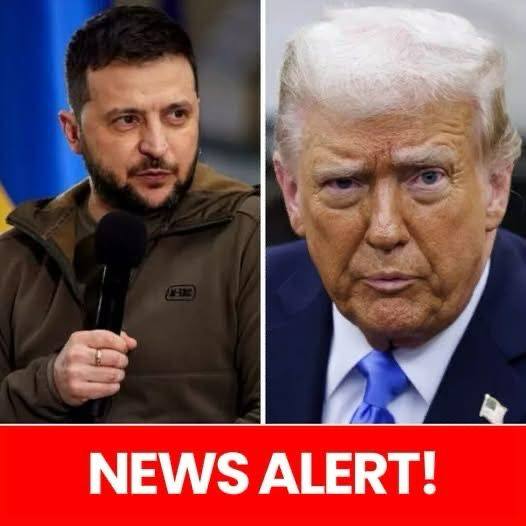In a tense and high‑stakes meeting that has since sent shockwaves through international political circles, former U.S. President Donald Trump and Ukrainian President Volodymyr Zelenskyy engaged in discussions that rapidly escalated into a public clash over the future of Ukraine. Although the meeting was intended to forge a path toward peace and to negotiate a critical minerals deal, it ended without any agreement, leaving both sides with nothing but stark warnings and heated words. Notably, Trump raised a dramatic alarm about the potential for global conflict—a warning that many fear could lead the world down the path toward World War III.
In the pages that follow, we will examine the background to this confrontation, the key moments of the exchange, and the strong reactions from political leaders and media outlets around the world. We will also consider the broader implications this clash may have on U.S.–Ukraine relations, global energy and security policy, and the future of diplomatic engagement in an increasingly polarized world.
I. A Meeting Born Out of Urgency
A. The Context of the Crisis
The meeting took place at a time when Ukraine is deeply embroiled in conflict. As the war continues to rage, the stakes for securing peace and stability have never been higher. With mounting pressure from both domestic audiences and international allies, Ukraine’s leadership has been forced to explore every possible avenue for ending the fighting. The White House meeting—set against the backdrop of the ongoing war—was arranged with this urgent need in mind. Key international figures, including French President Emmanuel Macron, who has long championed a united European response, played a critical role in persuading both Trump and Zelenskyy to come together, hoping that even a contentious dialogue might eventually lead to a breakthrough.
B. High‑Stakes Negotiations Amid Global Uncertainty
During the meeting, both leaders were under enormous pressure. Trump, known for his forceful style, sought to reassert American strength and control over the situation. Zelenskyy, on the other hand, entered the discussions burdened with the responsibility of protecting Ukrainian sovereignty and ensuring that any peace deal would not force his country to compromise its independence or territorial integrity. With Europe still reeling from the consequences of prolonged conflict, every word exchanged in the Oval Office carried weight, and the world watched with bated breath.
II. The Confrontation: Accusations and Denials
A. Trump’s Stark Warning
As the discussions unfolded, Trump’s rhetoric took a sharp turn. In a moment that would soon become widely publicized, he accused President Zelenskyy of putting the world at risk. “With us, you have the cards. You’re gambling with the lives of millions of people! You’re gambling with World War III! What you’re doing is very disrespectful to this country,” Trump declared. His forceful language was designed to underscore the gravity of the situation, implying that any unilateral moves by Ukraine could have disastrous global consequences. Trump’s comments suggested that if Ukraine did not align closely with American interests, the risks were enormous—a claim that has since sparked intense debate among experts and the public alike.
B. Zelenskyy’s Measured Rebuttal
Faced with Trump’s alarming accusations, President Zelenskyy responded in a manner that was both candid and defiant. He retorted, “I will wear a suit after this war is over. Maybe something like yours. Maybe better, maybe cheaper.” This brief yet loaded response carried multiple layers of meaning. On one level, Zelenskyy’s remark emphasized his focus on the war—indicating that formalities and personal image are secondary to the urgent need for national survival. On another level, his reference to Trump’s suit was a subtle, personal dig that challenged traditional expectations of formality in diplomacy.
Zelenskyy’s choice to wear his usual all‑black, military‑style attire during the meeting has become a symbol of his leadership during a time of crisis. For him, every decision—down to what he wears—reflects the dire priorities of his nation. By promising to don a suit only when the war is over, he made it clear that his immediate concern is defending his country, not conforming to Western norms of decorum.

Leave a Reply